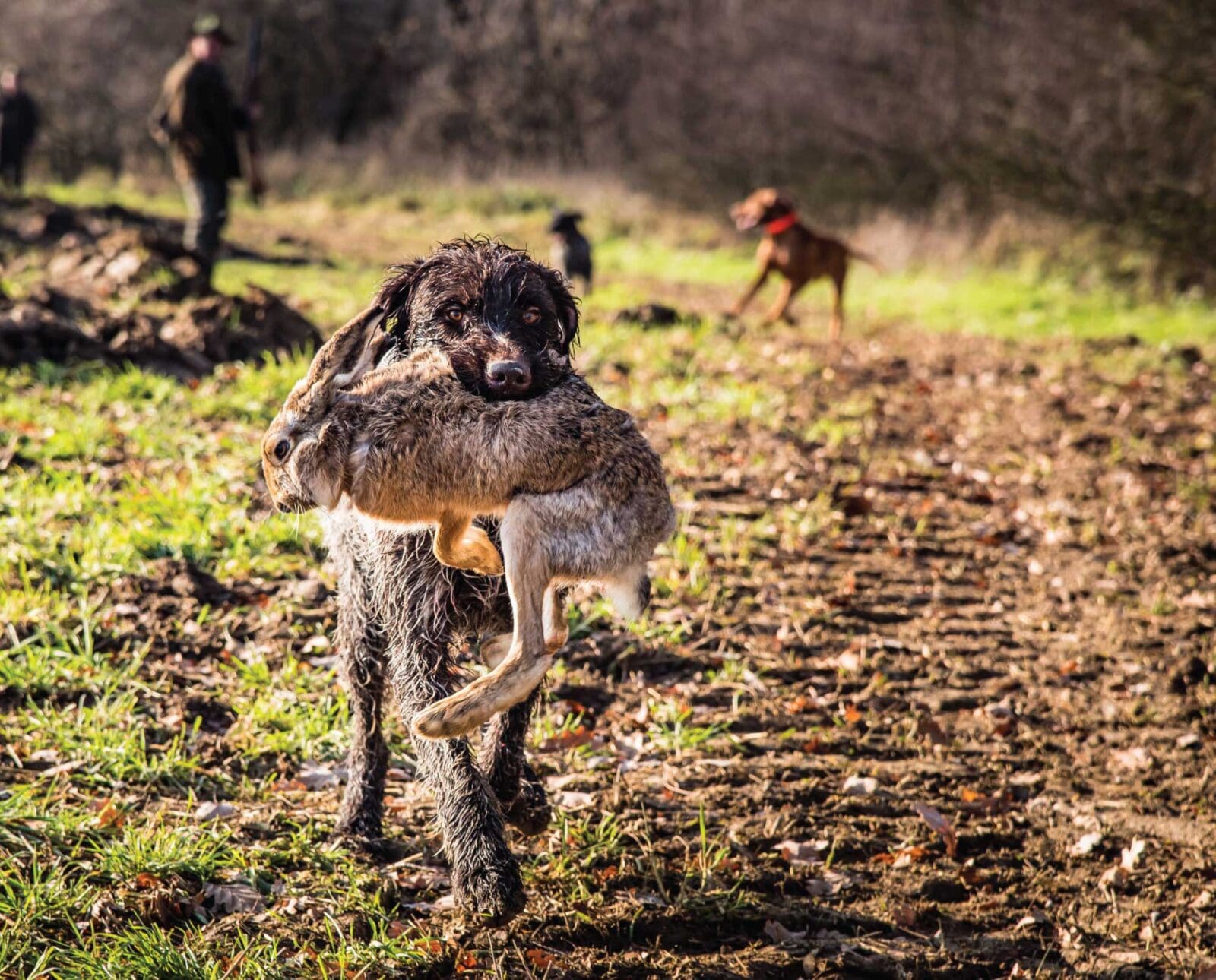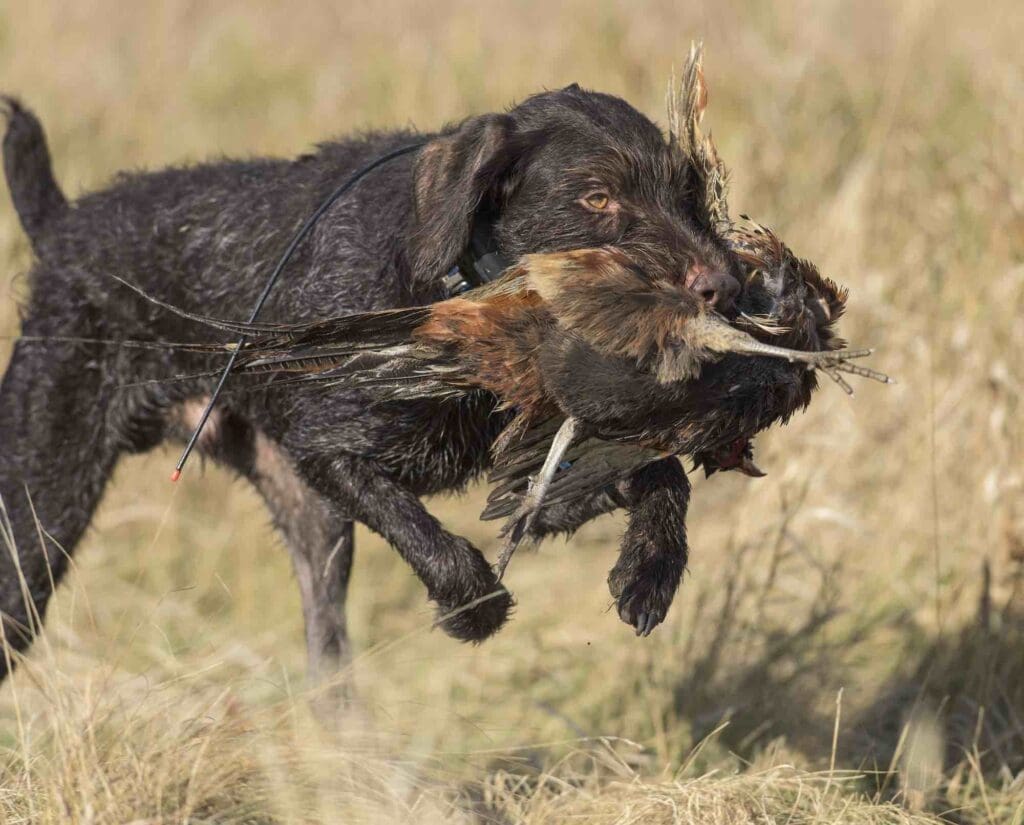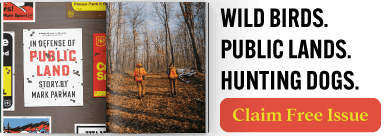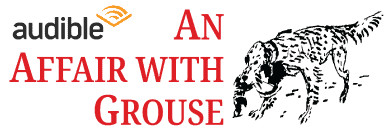Home » Project Upland Listen » Hunting Dog Confidential Podcast » Drahthaars, Langhaars, Bretons, and other International Breeds in America: HDC Episode #32
Drahthaars, Langhaars, Bretons, and other International Breeds in America: HDC Episode #32

Jennifer Wapenski is the Director of Operations and Managing Partner…
Is there a difference between a Deutsch Drahthaar and a German Wirehaired Pointer? Explore breeds with a foot in both North American and European Breed Clubs
We’ve been talking about the role of “place” in the history and culture of hunting dog breeds, but not every breed fits neatly within geographical boundaries. There are several breeds in North America who have a foot in two worlds: the parent country (often Germany) as well as North America.
LISTEN on Apple| Google | Spotify | Stitcher
We explore breeds such as the Deutsch Drahthaar, Deutsch Langhaar, and Deutsch Kurzhaar which are known by their German language names in order to differentiate from the German Wirehaired Pointer, German Longhaired Pointer, and German Shorthaired Pointer. Even though the names directly translate, the use of the German name signifies a very specific system and methodology that exists behind the individual dog. Each of these breeds is managed by a U.S.-based chapter of the German parent club, rather than an AKC or NAVHDA-based breed club.
The German clubs, along with their U.S.-based chapters, tie together a dog’s performance, health, and conformation into a single system. Before a dog can be bred, it must successfully complete a series of tests and evaluations. The purpose of this system is to ensure that the dogs maintain their consistent form and function, generation after generation. This fits in with the German hunting culture which requires “certified” hunting dogs in the field—in other words, it’s based on qualification rather than competition.
So is a Drahthaar the same thing as a GWP? We settle on the answer of “it depends”—when it comes to an individual dog. One dog may be the offspring of two Drahthaars but if the parents weren’t tested and certified for breeding within the regulations, then the puppies can’t be considered Drahthaars…even if the genetics are the same. But if this continues for five, ten, or twenty generations, at which point do enough differences creep in that they could be considered different breeds altogether? So rather than studying any one individual dog, it’s more productive to look at the GWP vs. DD discussion at the larger population level. In that case, they are absolutely not the same thing, since the breeds are managed in entirely different manners.

Is a German-bred dog right for you? Again, it depends. Jennifer talks about what drew her to the Deutsch Langhaar club, ultimately causing her to jump in feet first. But as with anything else, it’s a matter of personal preference. If the idea of a standardized system with strict protocols resonates with you, then it could be a great fit. No matter what, it’s helpful to understand the history and culture that surrounds these breeds in order to better appreciate them.
Enjoy the show and don’t forget to rate, review, subscribe, and share this podcast.
Share | Comment, review and discuss this episode of the podcast in our Project Upland Community Facebook group.
Hunting Dog Confidential is presented by Eukanuba Premium Performance Dog Food and supported by Syren USA and Kent Cartridge.
Jennifer Wapenski is the Director of Operations and Managing Partner at Project Upland Media Group. She has a lifelong passion for the outdoors, dogs, and wildlife; as an adult, she discovered that upland bird and waterfowl hunting were natural extensions of these interests. What started as initial curiosity soon escalated into a life-changing pursuit of conservation, advocacy, and education. Jennifer serves in a variety of roles such as the Breed Warden for the Deutsch Langhaar—Gruppe Nordamerika breed club and on an advisory committee for the Washington Department of Fish and Wildlife.




Teckels too! I hope one day they catch up with where DD’s and other breeds are recognized here.
Here in North America we have the North American Teckel Club (NATC) as an extension of the Deutscher Teckel Klub (DTK).
NATC: http://www.teckelclub.org
DTK : https://www.dtk1888.de